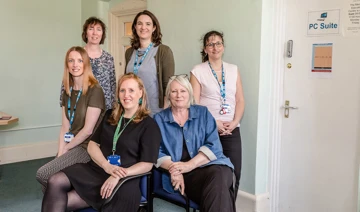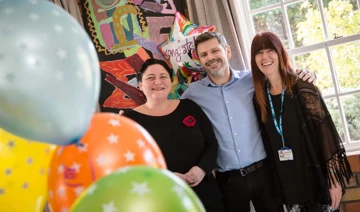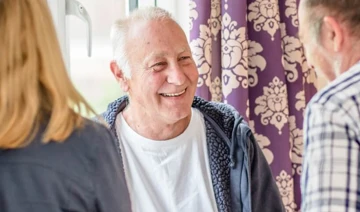New mental health boss takes bold approach to tackling staff concerns
Date added: 16 January 2024
Kent and Medway NHS and Social Care Partnership Trust (KMPT) has launched a bold, new approach to improving how staff and service users from different cultures and backgrounds work together to ensure equality, diversity and inclusion (EDI) is at the core of everything it does.
New CEO Sheila Stenson, who started her role on 1 November, has already set out her ambition to make every day a better day for staff and patients, with a priority to tackle violence and aggression, as well as and racism and discrimination experienced by some staff, and occasionally service users.
KMPT’s approach is being led by Sylvia Stevenson, an external EDI expert from IC24. It includes an in depth and far reaching cultural assessment of KMPT, as well as a programme of educating and empowering colleagues on how to become allies - not supporters - of marginalised and underrepresented groups. Staff are also being encouraged to step into culturally safe spaces, to be brave and have uncomfortable debates about diversity and inclusion – known as ZOUD (zone of uncomfortable debate) moments.
The work has started with the board and all senior leaders, and is now being rolled out across the trust. Over the coming months, regular ‘Listening into Action’ sessions with staff at all levels will be run by Sylvia to hear their thoughts and concerns.
This work will inform KMPT’s new strategy on EDI which it plans to launch in 2024.
Sheila Stenson said: “As an organisation that is proud to employ people from 66 different nationalities across diverse local populations in Kent and Medway, EDI is absolutely critical to us. It is only right that all our staff feel valued, safe, understood, and able to speak freely when going about their work.
“Unfortunately, we know from staff that some of them have shared experiences of not feeling that way, as well as concerns about racism. We also know that violence and aggression has become too common against our staff. Like the wider NHS, we must become a place where everyone can bring their whole self to work, without fear of discrimination and where acts of violence and aggression against them are not the norm.
“I am committed to making this better for our staff and the people we care for, but cannot do that unless we take a fresh focus on EDI and are prepared to be brave and do things differently. As the new CEO this is the perfect time to start that.”
KMPT is also spearheading research work to help underrepresented communities in Kent and Medway have a louder voice when it comes to developing mental health care services that are fit for their needs.
Its research and innovation team, in partnership with the Kent and Medway Medical School, has employed experts by experience to break down the barriers that restrict neurodivergent adults from being involved in research studies – which are the foundation of developing continually improved care models and treatments. It is also about to embark on a significant study among 150,000 Kent and Medway residents, with a focus on ethnic minorities, young mothers, older adults with dementia, and young adults with ill mental health to understand what these underrepresented groups need from mental health services.
Yasmin Damree-Ralph, KMPT diversity and inclusion manager added: “This work will help us truly understand staff’s experiences so we can make it better for them. Colleagues come to work to provide high quality care, but if they are dealing with racism, sexism, disablism or homophobia it makes the working life harder. The movement we are creating is challenging and exciting at the same time, shaped by the people who work for us. It is a long-term plan that will challenge and tackle the inequalities that our staff are facing, including violence and aggression, which has no place in KMPT. Our staff networks are supporting this work, and we will look to our service users to provide their views too.”



